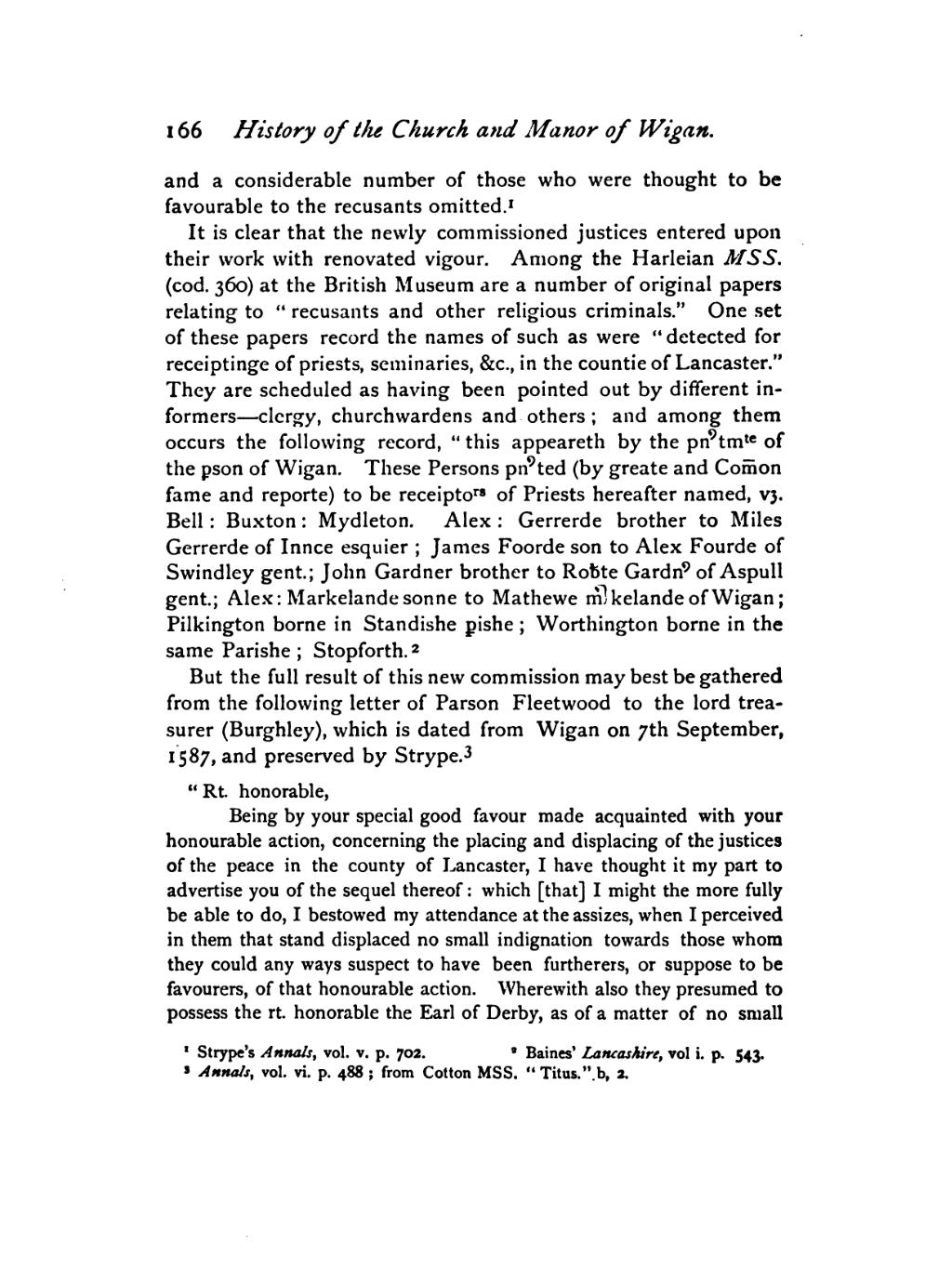and a considerable number of those who were thought to be favourable to the recusants omitted.[1]
It is clear that the newly commissioned justices entered upon their work with renovated vigour. Among the Harleian MSS. (cod. 360) at the British Museum are a number of original papers relating to "recusants and other religious criminals." One set of these papers record the names of such as were "detected for receiptinge of priests, seminaries, &c., in the countie of Lancaster." They are scheduled as having been pointed out by different informers—clergy, churchwardens and others; and among them occurs the following record, "this appeareth by the pnʼtmte of the pson of Wigan. These Persons pnʼted (by greate and Comon fame and reporte) to be receiptors of Priests hereafter named, vʒ. Bell: Buxton: Mydleton. Alex: Gerrerde brother to Miles Gerrerde of Innce esquier; James Foorde son to Alex Fourde of Swindley gent; John Gardner brother to Robte Gardnʼ of Aspull gent.; Alex: Markelande sonne to Mathewe mkelande of Wigan; Pilkington borne in Standishe pishe; Worthington borne in the same Parishe; Stopforth.[2]
But the full result of this new commission may best be gathered from the following letter of Parson Fleetwood to the lord treasurer (Burghley), which is dated from Wigan on 7th September, 1587, and preserved by Strype.[3]
- "Rt. honorable,
Being by your special good favour made acquainted with your honourable action, concerning the placing and displacing of the justices of the peace in the county of Lancaster, I have thought it my part to advertise you of the sequel thereof: which [that] I might the more fully be able to do, I bestowed my attendance at the assizes, when I perceived in them that stand displaced no small indignation towards those whom they could any ways suspect to have been furtherers, or suppose to be favourers, of that honourable action. Wherewith also they presumed to possess the rt. honorable the Earl of Derby, as of a matter of no small
